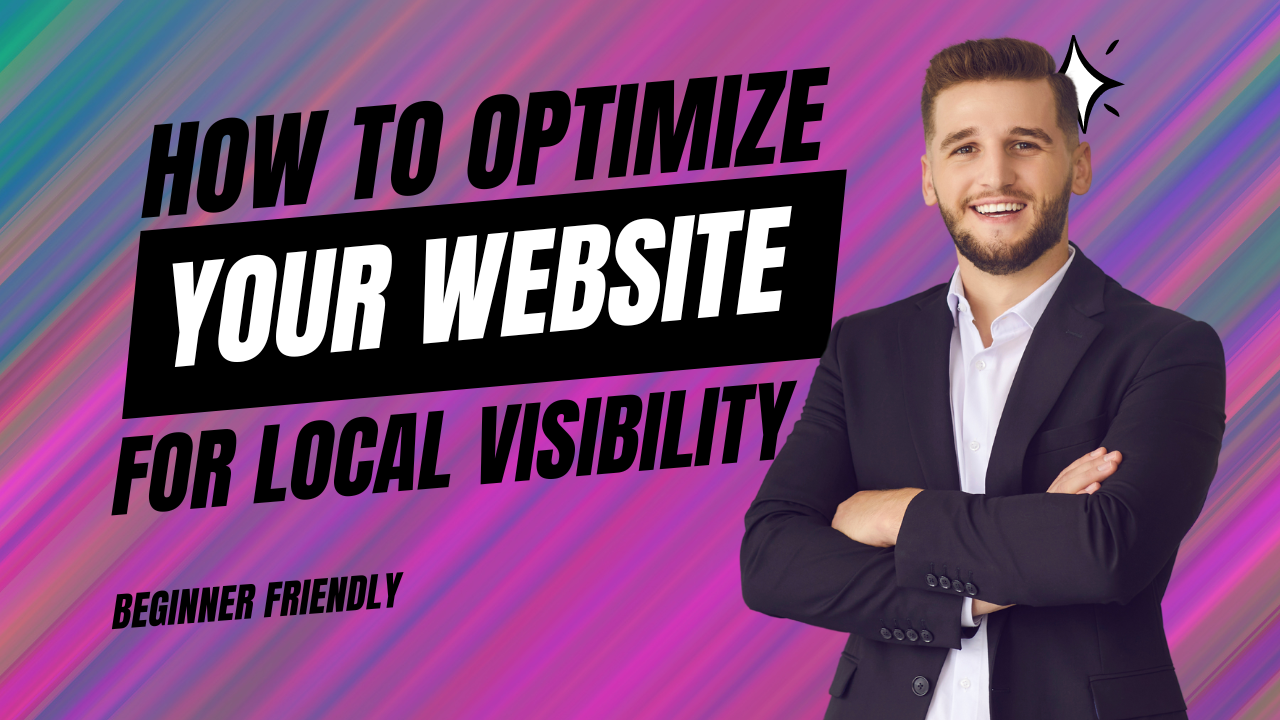
This guide is your one-stop shop for understanding local SEO and how to leverage it for your small business.
Introduction
Local SEO is all about making your business more visible in local search results. When people in your area search for products or services you offer, local SEO helps your business appear higher in search rankings and on Google Maps.
Imagine someone types “best pizza near me” in a search engine. Local SEO helps your pizzeria show up at the top of the search results, along with other relevant information like your address, opening hours, and customer reviews.
Why Local SEO Matters
Here’s why local SEO is crucial for small businesses:
Attract nearby customers: Most people searching locally are ready to buy and want to find businesses close by.
Increased website traffic: Higher local rankings mean more people see your website.
Boost sales and leads: Local SEO can turn website visitors into paying customers.
Finding the Right Keywords
Keywords are the words people use to search for things online. Local SEO focuses on keywords that include location, like “plumber in [your city]”. Here are some techniques to find local keywords:
Keyword research tools: Free and paid tools can help you discover relevant keywords.
Think like your customers: What terms would they use to find your business?
Competitor research: what are your competition’s keywords? what are they ranking for?
On-Page Optimization Tips
On-page optimization involves optimizing your website content for local search.
Include local keywords naturally: Use your target keywords throughout your website content, but avoid keyword stuffing.
Optimize page titles and descriptions: Include your city and target keywords in your website’s title tags and meta descriptions.
Local-Focused Content
Creating content that appeals to local audiences is another key strategy.
Target local events and interests: Write blog posts about local happenings or topics relevant to your community.
Highlight local partnerships: Showcase collaborations with other local businesses.
Create location-specific pages: If you serve multiple areas, create pages for each location with unique content.
Setting Up Your Google My Business Profile
Google My Business (GMB) is a free tool that helps manage your business listing on Google Search and Maps.
Create a GMB profile: Claim and verify your business listing on Google My Business.
Accurate information is key: Ensure your business name, address, phone number, website, and category are accurate and up-to-date.
Regularly update your profile: Add photos, respond to reviews, and keep your information fresh.
Optimize Building Citations
Think of citations as online references to your business. They include your essential contact details (name, address, and phone number) and appear on various websites like business directories.
Find relevant online directories: Search for local business directories and general directories where you can list your business for free.
Claim existing listings: Many directories already have your business listed, claim and update them with accurate information.
Submit your business to new directories: Look for high-quality directories in your niche and submit your business information.
SEO Friendly Local Link Building
Link building refers to getting other websites to link back to yours. Local link building focuses on acquiring links from websites within your local area.
1-Get listed in local business associations’ websites.
2-Partner with local influencers or bloggers for guest posts.
3-Sponsor local events and get backlinks from event websites.
Mobile-Friendly Website
Most local searches happen on mobile devices
Use a responsive website design: This ensures your website adjusts automatically to different screen sizes.
Test your website on mobile devices: Make sure your website is easy to navigate and use on smartphones.
Tracking Your Progress: Monitoring your local SEO performance helps you understand what’s working and where to improve.
Track your local ranking: Use free tools to track your website’s ranking for your target keywords.
Monitor website traffic: See how much traffic your website gets from local searches.
Analyze Google My Business insights: GMB provides valuable data on how customers interact with your listing.
Advanced On-Page Optimization:
Structured Data Markup: This code snippet helps search engines understand your website content better. Implement local business schema to provide richer information about your business in search results.
Optimize Images: Include relevant keywords in image file names, alt text descriptions, and captions.
Internal Linking: Create a strong internal linking structure on your website. Link relevant local content pages to your homepage and other important pages.
Content Marketing for Local SEO:
Blog Regularly: For best SEO practices, maintain a blog and publish fresh content consistently. Target local keywords and create informative blog posts about your industry, local events, or tips relevant to your target audience.
Customer Reviews and Testimonials: Encourage satisfied customers to leave positive reviews on Google My Business and other platforms like Yelp or Facebook. Respond to reviews promptly, thanking positive feedback and addressing negative comments professionally.
Engage on Social Media: Build a strong social media presence on platforms popular with your local audience. Share your blog content, local events, and special offers. Engage in conversations and build relationships with your community.
Going Beyond Google:
Optimize for Local Directories: While Google My Business reigns supreme, don’t neglect other relevant directories. Claim and update listings on platforms like Yelp, Bing Places, Yahoo Local, and industry-specific directories.
Online Reputation Management: Monitor your online reputation across various platforms. Address negative reviews promptly and professionally. Proactively solicit positive reviews from satisfied customers.
Additional Local SEO Strategies:
Online Reputation Management: Partner with local influencers or micro-influencers in your niche. Offer them free products or services in exchange for reviews or social media mentions.
Get Involved in the Community: Sponsor local events, participate in charity initiatives, or volunteer your expertise. This builds brand awareness, goodwill, and potential backlinks from local websites.
Run Local Pay-Per-Click (PPC) Ads: Consider local PPC advertising on search engines or social media platforms. Target specific geographic areas and keywords to reach potential customers actively searching for your offerings.
Local SEO is worth it!
Local SEO is an ongoing process, but the effort pays off by attracting more local customers and boosting your business. This guide equips you with the foundational knowledge to get started. Take action and optimize your website for local search today!





